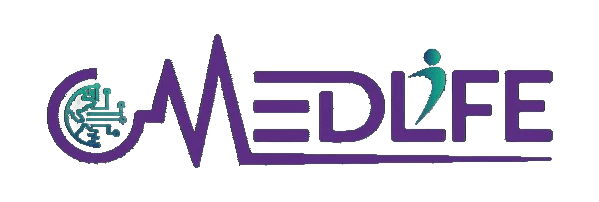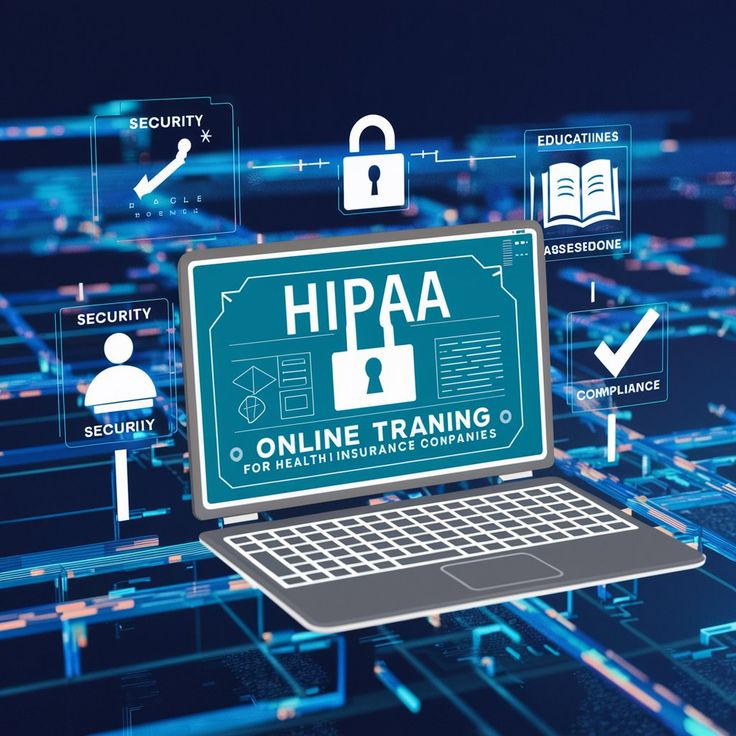The Importance of HIPAA Compliance in Medical Coding
In an era where healthcare data breaches cost an average of $10.1 million per incident (IBM Security Report, 2023), HIPAA compliance in medical coding isn’t just a legal requirement it’s a critical safeguard for both healthcare providers and patients. Medical coders work with Protected Health Information (PHI) on a daily basis, and any breach not only risks hefty fines but also erodes patient trust and disrupts healthcare operations. Let’s explore why HIPAA compliance matters, the biggest risks of non-compliance, and how practices can protect themselves.
1. Understanding HIPAA in Medical Coding: More Than Just Rules
HIPAA, established in 1996, transformed how healthcare organizations handle patient information. Research shows that common HIPAA violations often stem from improper handling of PHI, making it particularly relevant to medical coding practices.
- Scope of Data: According to the Office for Civil Rights (OCR), medical coding operations handle approximately 1.4 million patient records daily in an average-sized hospital.
- Balancing Efficiency and Security: The challenge for many medical coders is reconciling the need to code efficiently with stringent rules for privacy and security.
2. The Real Cost of Non-Compliance
Financial Implications
- Hefty Fines: The average fine for a HIPAA violation ranges from $100 to $50,000 per violation (or per record), with a maximum penalty of $1.5 million per year for each violation category.
- Ongoing Operational Costs: HIPAA-related data breaches can increase operational costs by 48%, according to recent studies by the American Medical Association.
Patient Churn and Reputational Damage
- Patient Trust: A 23% patient churn rate often follows a data breach, meaning nearly one in four patients may switch providers after a major security incident.
- Recovery Time: Healthcare entities take an average of 287 days to fully recover from a breach incident, further straining resources.
3. Essential HIPAA Compliance Measures in Modern Coding Practices
Modern medical coding needs a multi-layered security framework. The National Institute of Standards and Technology (NIST) recommends administrative, physical, and technical safeguards that ensure the confidentiality, integrity, and availability of healthcare data.
Administrative Safeguards
- Policies and Procedures
- Maintain detailed, written policies on how coders must handle PHI.
- Implement a clear chain of command for handling suspected breaches or unauthorized disclosures.
- Training and Education
- Require annual HIPAA training and refreshers.
- Include real-life scenarios to ensure coders understand day-to-day compliance challenges.
- Role-Based Access Control (RBAC)
- Assign access rights based on job roles. Research shows that RBAC can reduce security incidents by up to 63%.
- Revoke or adjust access promptly when a coder changes roles or leaves the organization.
Physical Safeguards
- Secured Workstations
- Position computer screens so that patient information isn’t visible to unauthorized individuals.
- Keep paper records in locked cabinets or rooms.
- Badge Systems and Video Surveillance
- Limit facility access to authorized personnel.
- Use ID badges or electronic key cards to monitor physical entry.
Technical Safeguards
- Encryption Protocols
- Use AES-256-bit encryption for all electronic Protected Health Information (ePHI), which is stronger than the minimum standard.
- Encrypt both data at rest (on servers or devices) and data in transit (email attachments, file transfers).
- Authentication and Authorization
- Two-factor authentication (2FA) or Multi-Factor Authentication (MFA) adds an extra layer of security to login processes.
- Unique login credentials for each coder prevent unauthorized access and facilitate accurate audit trails.
- Activity Monitoring and Audit Trails
- Continuously monitor coding activities and maintain audit logs.
- Review system access logs to spot unusual patterns (e.g., frequent after-hours logins or large data exports).
4. Emerging Technologies and Compliance
Artificial Intelligence (AI) and Machine Learning
- AI-Assisted Coding: According to HIMSS, 89% of healthcare organizations are now integrating AI tools to streamline coding.
- Regulatory Challenges: Ensure vendor-provided AI solutions follow HIPAA’s “minimum necessary” rule and incorporate secure data handling practices.
Telehealth and Remote Coding
- VPNs and Secure Connections: Telehealth has grown exponentially, prompting coders to work remotely. Always use secure VPNs and encrypted platforms to transmit data.
- Device Management: When coding on personal or work-assigned devices, ensure compliance standards are met (e.g., strong passwords, device encryption, remote wipe capabilities).
5. The Professional Advantage: Why Expertise Matters
Continuous Education
- Certified coders should undergo regular training on the latest HIPAA regulations and coding standards—ideally 20 hours of specialized compliance training annually.
- Knowledge of ICD-10-CM and CPT changes each year ensures accuracy and claim compliance.
Advanced Security Infrastructure
- 24/7 Monitoring: Round-the-clock system monitoring and regular penetration testing help proactively identify vulnerabilities.
- Incident Response Plans: Having a clear procedure for breach containment, notification, and remediation is essential for minimizing damage.
Business Associate Agreements (BAAs)
- Outsourced Coding: If you outsource coding tasks, ensure that Business Associate Agreements are in place, stating that the vendor will adhere to HIPAA guidelines.
- Third-Party Risks: Evaluate the cybersecurity posture of third-party providers, as data breaches can often occur through external vendors.
6. Additional Best Practices for HIPAA-Compliant Coding
- Use Secure Messaging Tools
- Tools with end-to-end encryption for internal communications prevent PHI exposure via unsecured channels.
- Frequent Audits
- Conduct random internal audits to catch coding errors, assess compliance, and spot potential red flags early.
- External audits by HIPAA compliance experts can offer an unbiased review.
- Incident Reporting Culture
- Encourage staff to promptly report any suspicious behaviour or potential breaches without fear of retaliation.
- A “see something, say something” mindset helps contain security threats quickly.
- Patient Consent and Awareness
- Provide transparent privacy notices to patients, outlining data usage and disclosure practices.
- Gather explicit patient consent where necessary (e.g., for research or marketing purposes) to avoid HIPAA violations.
7. Looking Ahead: The Future of HIPAA Compliance
As healthcare technology and data analytics continue to evolve, HIPAA regulations must adapt to address new threats. The Department of Health and Human Services projects that by 2025, 75% of healthcare organizations will need to significantly upgrade their data protection strategies to keep pace with advanced cyber threats and innovative data use cases.
Anticipated Changes
- Stricter Enforcement: Expect more rigorous OCR audits and stiffer penalties for non-compliant entities.
- Increased Automation: Automated coding and claims processing will demand more robust ePHI safeguards.
- Global Considerations: Healthcare organizations conducting international telehealth or research may face layered data protection regulations alongside HIPAA (e.g., GDPR).
8. Taking Action for Your Practice
Ensuring HIPAA compliance in medical coding isn’t just about avoiding fines—it’s about protecting patient data and upholding the trust that fuels healthcare’s core mission. Non-compliance often leads to financial losses, operational disruptions, and reputational damage that can take months or years to repair.
How MedLifembs Can Help
At MedLifembs, we understand the complexities of medical coding and HIPAA compliance:
- Expert Coders: Our team stays updated with 20+ hours of specialized compliance training annually to keep pace with regulatory changes.
- Advanced Security Measures: We employ enterprise-grade firewalls, end-to-end encryption, and round-the-clock system monitoring to safeguard PHI.
- Dedicated Support: Our specialists work closely with your in-house team to tailor solutions that fit your practice’s unique operational needs.
Ready to Secure Your Coding Process?
Contact our team today to explore HIPAA-compliant medical coding solutions that prioritize both efficiency and data integrity.
In an era where healthcare data breaches cost an average of $10.1 million per incident (IBM Security Report, 2023), HIPAA compliance in medical coding isn’t just a legal requirement—it’s a critical safeguard for both healthcare providers and patients. Let’s explore why this matters and how practices can protect themselves.
Understanding HIPAA in Medical Coding: More Than Just Rules
HIPAA, established in 1996, fundamentally transformed how healthcare organizations handle patient information. Research shows that common HIPAA violations stem from improper handling of Protected Health Information (PHI), making it particularly relevant to medical coding practices.
According to the Office for Civil Rights (OCR), medical coding operations handle approximately 1.4 million patient records daily in an average-sized hospital, emphasizing the massive scope of data protection needed. The challenge lies in balancing efficient coding processes with stringent privacy protection measures.
The Real Cost of Non-Compliance
The financial implications of HIPAA violations are staggering. In 2023, the average fine for a HIPAA violation ranged from $100 to $50,000 per violation (or per record), with a maximum penalty of $1.5 million per year for each violation. But the costs extend beyond just fines:
Recent studies by the American Medical Association show that healthcare providers who experience HIPAA violations typically face:
- 23% patient churn rate following a data breach
- 48% increase in operational costs
- Average recovery time of 287 days
Essential Compliance Measures in Modern Coding Practices
Modern medical coding requires a sophisticated approach to HIPAA compliance. The National Institute of Standards and Technology (NIST) recommends a multi-layered security framework that includes administrative, physical, and technical safeguards.
In practical terms, this means implementing:
- Advanced Encryption Protocols: AES-256-bit encryption is used for all electronically Protected Health Information (ePHI), which provides significantly stronger protection than the minimum required standard.
- Role-Based Access Control (RBAC): Research shows that implementing RBAC can reduce security incidents by up to 63% by limiting access to sensitive information only to those who need it.
Emerging Technologies and Compliance
The integration of artificial intelligence and machine learning in medical coding presents new compliance challenges. Recent studies from the Healthcare Information and Management Systems Society (HIMSS) indicate that 89% of healthcare organizations are now using AI-assisted coding tools, making it crucial to ensure these technologies align with HIPAA requirements.
The Professional Advantage: Why Expertise Matters
Professional medical coding services from MedLifembs, maintain compliance through:
- Continuous Education: Our certified coders undergo regular training on the latest HIPAA regulations and coding standards, with an average of 20 hours of specialized compliance training annually.
- Advanced Security Infrastructure: We employ enterprise-grade security measures, including 24/7 monitoring systems and regular penetration testing to ensure data safety.
Looking Ahead: The Future of HIPAA Compliance
As healthcare technology evolves, HIPAA compliance must adapt. The Department of Health and Human Services projects that by 2025, 75% of healthcare organizations will need to significantly upgrade their compliance measures to address new technological challenges.
Taking Action for Your Practice
Ensuring HIPAA compliance in medical coding requires a comprehensive approach. At MedLifembs, we understand these complexities and offer solutions that keep your practice both compliant and efficient. Whether you’re handling coding in-house or considering professional services, remember that HIPAA compliance isn’t just about avoiding penalties—it’s about protecting your patients and your practice’s future.
Need expert guidance on HIPAA-compliant medical coding? Contact our team to learn how we can help secure your coding processes while maintaining optimal efficiency.


